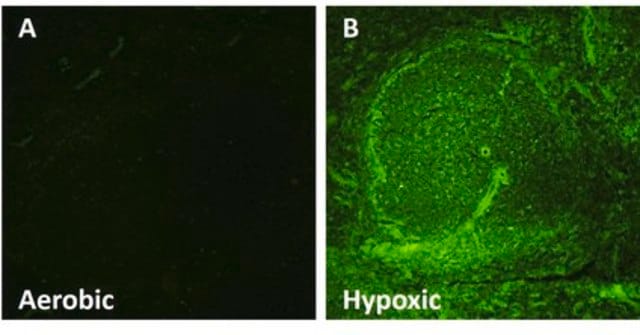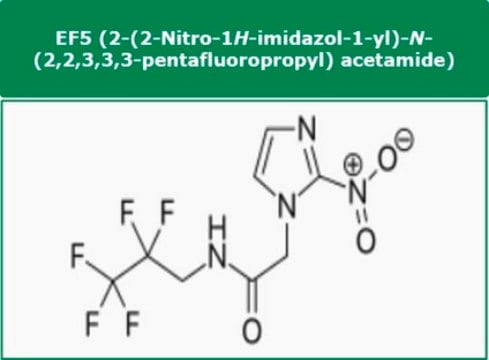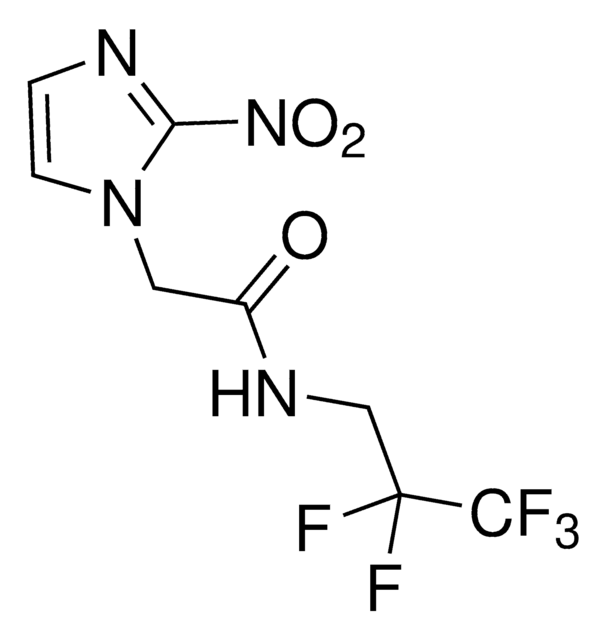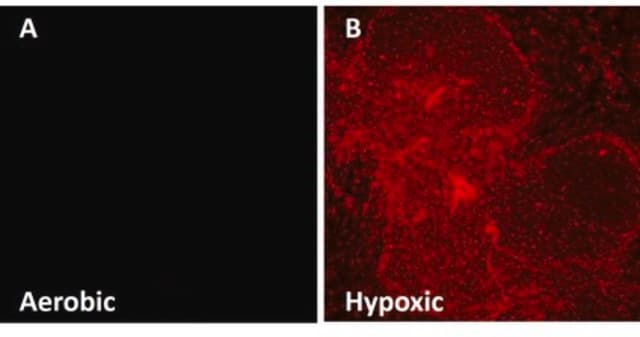EF5011
Anti-EF5 Antibody, clone ELK3-51 Antibody, Cyanine 3 conjugate
clone ELK3-51, from mouse, CY3 conjugate
About This Item
Produtos recomendados
fonte biológica
mouse
conjugado
CY3 conjugate
tipo de produto de anticorpo
primary antibodies
clone
ELK3-51, monoclonal
reatividade de espécies
rat, mouse, human
técnica(s)
immunofluorescence: suitable
immunohistochemistry: suitable
Isotipo
IgG1
Descrição geral
Advantages of the EF5 hypoxia detection method:
• EF5 exists in only one form; Pimidozole, an alternative hypoxia marker, exists in two forms; one of which is charged and very hydrophilic, the other lipophilic. Pimidozole thus has a very complex biodistribution. In contrast, EF5 is lipophilic and uncharged and this allows very rapid and even tissue distribution.
• EF5 binding images can be calibrated to provide quantitative data on the pO2 values of each cell (1). The fluorescent images obtained from EF5 binding can be calibrated according to camera settings and a “cube-binding” value which is obtained through a separate procedure. The intensity values of calibrated images are directly related to actual tissue pO2 values. As a result, these images provide information regarding not only where hypoxic areas may or may not be, but also data regarding the distribution and levels of hypoxia.
Reference:
Koch CJ (2002) Measurement of absolute oxygen levels in cells and tissues using oxygen sensors and 2-nitroimidazole EF5. Methods in Enzymology 352: 3-31.
Aplicação
Cancer
Hypoxia
Armazenamento e estabilidade
Outras notas
Exoneração de responsabilidade
Not finding the right product?
Try our Ferramenta de seleção de produtos.
Código de classe de armazenamento
12 - Non Combustible Liquids
Classe de risco de água (WGK)
WGK 2
Ponto de fulgor (°F)
Not applicable
Ponto de fulgor (°C)
Not applicable
Certificados de análise (COA)
Busque Certificados de análise (COA) digitando o Número do Lote do produto. Os números de lote e remessa podem ser encontrados no rótulo de um produto após a palavra “Lot” ou “Batch”.
Já possui este produto?
Encontre a documentação dos produtos que você adquiriu recentemente na biblioteca de documentos.
Artigos
Hypoxia detection assays to measure oxygen levels in both live and fixed cells and tissues.
Nossa equipe de cientistas tem experiência em todas as áreas de pesquisa, incluindo Life Sciences, ciência de materiais, síntese química, cromatografia, química analítica e muitas outras.
Entre em contato com a assistência técnica







